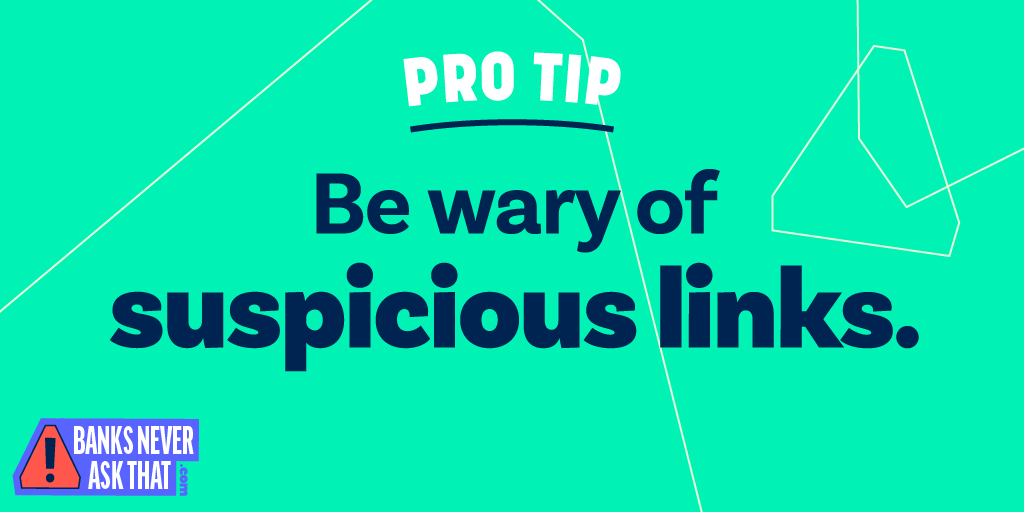For the past month, we’ve alerted you to the latest phishing scams, and they can come from all angles.
Today, we focus on phishing text messages, also known as smishing.
Just as with phone calls and email scams, they are increasing.
That’s why, throughout the month of October, Regions Bank and banks across the nation are supporting the American Bankers Association’s #BanksNeverAskThat campaign to help keep customers safe.

In this quick, informative video, learn 3 signs a text message is a scam:
- Your bank will never ask you call them back at an unfamiliar number.
- Ask you click a suspicious link.
- Ask you to text your PIN, password or Social Security number.
You can learn more about spotting phishing campaigns and test your scam IQ by going to BanksNeverAskThat.com and selecting “Play Scam City.” The game is fun, and, in a matter of minutes you’ll be even better prepared to keep your money and personal information secure.
Because our shared goal is to help keep you safe. And the best way is through education.
“In this campaign, we’ve provided the warning signs of fraudulent calls and emails. Now, we are focused on text scams,” said Jeff Taylor, head of Commercial Fraud Forensics at Regions. “Our goal is to keep you educated and aware of these threats because you are your first line of defense. Pay close attention to unsolicited text messages from unknown senders. These text messages may actually appear to be legitimate. Closely examine the link embedded in the text or the phone number to call because they are likely not connected to the business making the request.”
Keep turning to Doing More Today throughout October for more tips and quick videos.
And, as always, you can find more information from us at regions.com.
Related Articles from Doing More Today:

The information presented is general in nature and should not be considered, legal, accounting or tax advice. Regions reminds its customers that they should be vigilant about fraud and security and that they are responsible for taking action to protect their computer systems. Fraud prevention requires a continuous review of your policies and practices, as the threat evolves daily. There is no guarantee that all fraudulent transactions will be prevented or that related financial losses will not occur. Visit regions.com/STOPFRAUD or speak with your Banker for further information on how you can help prevent fraud.